In today’s world, fitness is no longer just a hobby—it has become a global lifestyle. People everywhere are focusing more on health, appearance, and overall well-being. One of the most common goals is achieving and maintaining an ideal weight.
For many, this journey goes beyond simple exercise routines. While staying active is important, the real progress often comes from following effective weight loss diet plans. These plans help control calorie intake, manage nutrients, and support a healthier lifestyle overall.
Whether someone is trying to lose a few pounds or make a major health change, choosing the right weight loss diet plan is essential. With proper planning, people can see lasting results, stay energized, and improve their overall health. A balanced eating approach not only helps with weight control but also supports long-term fitness and well-being. For many, it’s the most important step toward achieving their fitness goals.

In this comprehensive guide, we’ll explore the science behind weight loss, dissect popular diet plans, and help you choose a strategy that aligns with your body, lifestyle, and goals.
Understanding Weight Loss: The Basics
Weight loss mainly comes down to energy balance. When you eat fewer calories than your body needs to stay at its current weight, it starts using stored fat for energy. This process leads to weight loss and is the basic idea behind most weight loss diet plans.
But successful weight loss isn’t just about cutting calories. It’s about building a lifestyle that supports long-term health. Good weight loss diet plans focus on nutritious foods, regular physical activity, and a positive mindset. This balanced approach helps people not only lose weight but also maintain their results and feel better overall.
Caloric Deficit: The Golden Rule
A caloric deficit is essential for weight loss—it means you must burn more calories than you take in. This is the foundation of all effective weight loss diet plans. There are three main ways to create a calorie deficit: eating fewer calories, increasing physical activity, or combining both. Most successful weight loss strategies use a mix of healthy eating and regular exercise to ensure steady progress. Following well-balanced weight loss diet plans helps maintain this deficit in a sustainable way.
Reduce calorie intake (diet).
Increase calorie expenditure (exercise).
Combine both (ideal method).
But beware: too steep a deficit can lead to muscle loss, fatigue, and nutrient deficiencies. Aim for a moderate deficit of 300–500 calories per day for safe, sustainable weight loss.
Macronutrients and Their Role in Weight Loss
Understanding macronutrients (macros) is crucial:
Protein plays a key role in building and repairing body tissues. It also helps keep you feeling full for a longer time, which can reduce overeating. Common protein sources include chicken, fish, tofu, and legumes. Including enough protein is important in effective weight loss diet plans.
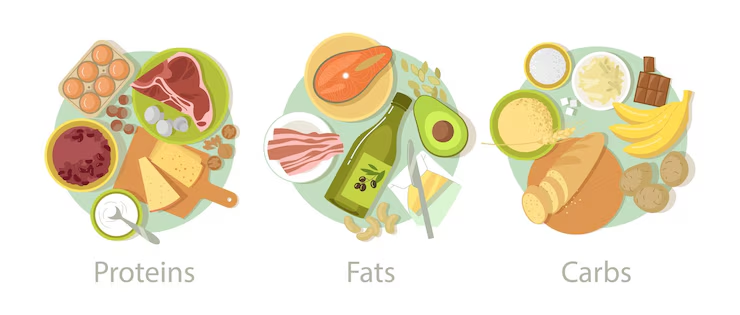
Carbohydrates are the body’s main source of energy. Instead of simple carbs, choose complex carbohydrates like oats, quinoa, and brown rice. These provide longer-lasting energy and support stable blood sugar levels, which is helpful in weight loss diet plans.
Fats are essential for producing hormones and supporting brain health. Healthy fats also help you feel satisfied after meals. Good sources include avocados, nuts, seeds, and olive oil. Including the right kind of fats is important for balance in weight loss diet plans.
An effective weight loss diet balances these macros in alignment with your goals.
Popular Weight Loss Diet Plans
A. Low-Carb Diets (Keto, Atkins)
Low-carb diets like Keto and Atkins are popular weight loss diet plans that focus on reducing carbohydrate intake. These diets encourage the body to burn fat for energy instead of carbs, which can lead to quicker weight loss. They typically include foods high in protein and healthy fats while limiting bread, pasta, and sugary items.
Many people follow low-carb weight loss diet plans to control hunger and boost fat burning. While results can be effective, it’s important to balance nutrients and stay hydrated. These diets may not be suitable for everyone, so consulting a professional is often recommended.
These diets drastically reduce carbohydrate intake and increase fat consumption.
Keto: High fat, moderate protein, very low carbs (5-10% of daily intake).
Atkins: Starts very low in carbs, gradually reintroduces them.
How it works: Low carbs force your body into ketosis, where it burns fat for fuel.
Ideal for: Quick weight loss, insulin resistance, type 2 diabetes (under medical supervision).
B. Intermittent Fasting (IF)
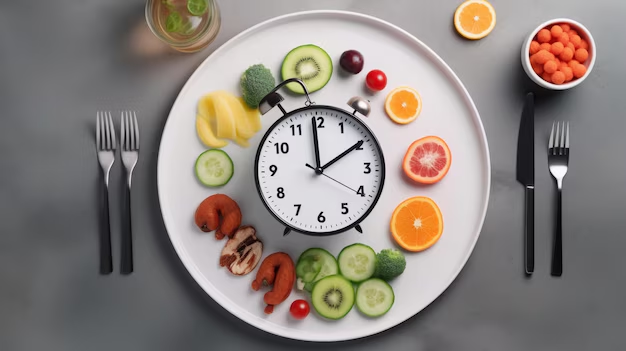
Intermittent Fasting (IF) is a popular method included in many weight loss diet plans. It focuses on when you eat rather than what you eat. Common approaches include fasting for 16 hours and eating within an 8-hour window. During fasting periods, your body uses stored fat for energy, which can lead to weight loss.
Many people choose IF because it’s simple and doesn’t always require calorie counting. When combined with healthy food choices, IF can support effective and sustainable weight loss. As with other weight loss diet plans, consistency and a balanced approach are key to long-term success.
This involves cycling between periods of eating and fasting.
Popular methods: 16:8 (16 hours fast, 8-hour eating window), 5:2 (eat normally 5 days, restrict for 2).
How it works: Fasting periods trigger hormonal changes that enhance fat burning.
Ideal for: Busy lifestyles, those who prefer structured eating windows.
C. Mediterranean Diet
The Mediterranean Diet is one of the healthiest weight loss diet plans, inspired by the traditional eating habits of countries near the Mediterranean Sea. It focuses on whole foods like fruits, vegetables, whole grains, legumes, fish, and healthy fats such as olive oil. Red meat and processed foods are limited.
This diet supports heart health and can also help with weight loss when combined with proper portion control. It’s easy to follow, flexible, and promotes long-term well-being. Many people choose the Mediterranean approach because it encourages balanced eating, making it one of the most sustainable weight loss diet plans.
A heart-healthy diet emphasizing:
Fruits, vegetables, legumes
Whole grains
Fish and lean proteins
Olive oil
Moderate wine intake
How it works: Prioritizes nutrient-dense, anti-inflammatory foods.
Ideal for: Long-term health, weight loss without extreme restrictions.
D. Paleo Diet
The Paleo Diet is based on the idea of eating like our ancestors did during the hunter-gatherer era. It includes whole foods such as lean meats, fish, fruits, vegetables, nuts, and seeds while avoiding processed foods, dairy, grains, and legumes. This approach helps reduce intake of sugar and unhealthy fats.
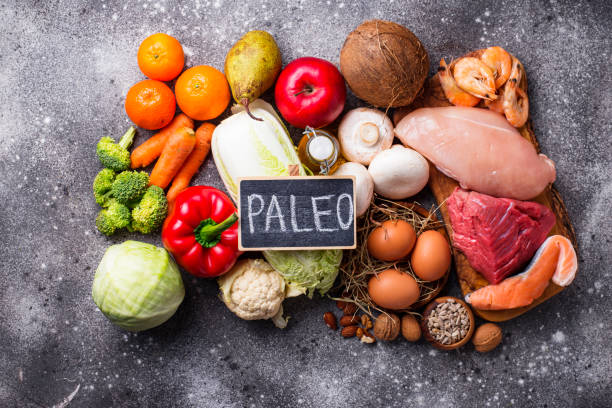
Many people follow Paleo as one of their preferred weight loss diet plans because it emphasizes natural, nutrient-rich foods. By cutting out processed items and focusing on clean eating, it may support weight loss and better digestion. It also encourages mindful eating habits that can benefit overall health.
Based on the eating patterns of ancient humans:
Focus on whole foods, lean meats, fruits, veggies, nuts.
Excludes grains, dairy, processed foods.
How it works: Eliminates modern processed foods, reduces inflammation.
Ideal for: Those wanting a clean, back-to-basics diet.
E. Vegan/Plant-Based Diet
A Vegan or Plant-Based Diet focuses on eating foods that come from plants, such as fruits, vegetables, grains, legumes, nuts, and seeds. It avoids all animal products including meat, dairy, and eggs. This type of diet is rich in fiber and nutrients while being lower in calories and saturated fats.
Many people choose vegan or plant-based weight loss diet plans for health, ethical, or environmental reasons. These diets can support weight loss when meals are balanced and include enough protein and healthy fats. They promote natural, whole foods that help improve digestion, energy levels, and long-term wellness.
Excludes all animal products. Emphasizes:
Fruits, vegetables, legumes, grains, seeds, and nuts.
How it works: High fiber and lower calorie density promote satiety and reduce overall calorie intake.
Ideal for: Ethical eaters, those concerned with sustainability and heart health.
F. DASH Diet
The DASH Diet, which stands for Dietary Approaches to Stop Hypertension, was created to help lower blood pressure. It focuses on eating plenty of fruits, vegetables, whole grains, lean proteins, and low-fat dairy while reducing salt, sugar, and saturated fats. This balanced approach supports heart health and overall wellness.
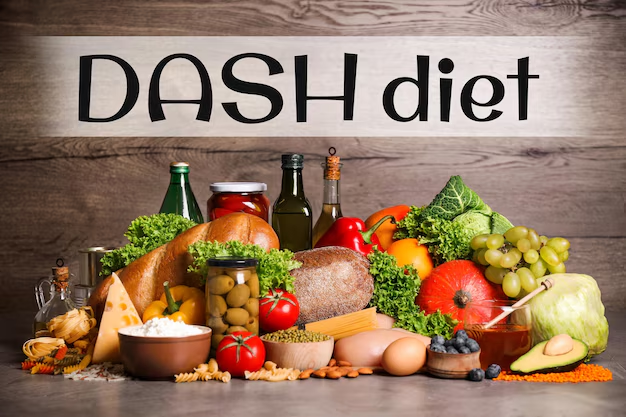
Because it encourages healthy, portion-controlled meals, the DASH Diet is often included in effective weight loss diet plans. It helps reduce calorie intake without extreme restrictions and supports long-term habits. Many people find it easy to follow and sustainable, making it a great choice for both health and weight management.
Originally designed to lower blood pressure, the DASH diet focuses on:
Low sodium
High fruits, vegetables, whole grains, and lean proteins
How it works: Reduces sodium and emphasizes nutrient-rich foods.
Ideal for: Those with hypertension or looking for a balanced approach.
Pros and Cons of Each Diet Plan
| Diet Plan | Pros | Cons |
|---|---|---|
| Keto | Rapid fat loss, reduced cravings | Difficult to sustain, keto flu |
| Intermittent Fasting | Convenient, may improve metabolism | Hunger, may affect energy levels |
| Mediterranean | Heart-healthy, sustainable | Slower results |
| Paleo | Eliminates processed foods | Restrictive, expensive |
| Vegan | High fiber, eco-friendly | Nutrient deficiencies possible |
| DASH | Great for heart health | Moderate weight loss |
| Calorie Counting | Flexible, science-based | Time-consuming, requires discipline |
Sustainable Weight Loss Tips
Avoid fad diets – Extreme restrictions, such as cutting out entire food groups, often lead to rebound weight gain. These short-term solutions are not sustainable and can harm your metabolism. Instead, focus on weight loss diet plans that promote balanced, healthy eating over time.
Focus on whole foods – Nutrient-dense foods like fruits, vegetables, lean proteins, and whole grains keep you fuller for longer and provide lasting energy. They support your body’s needs, making them a key part of weight loss diet plans that foster long-term success.
Stay hydrated – Drinking plenty of water helps digestion, keeps you feeling full, and supports your metabolism. Hydration plays an important role in managing hunger and should be a priority when following weight loss diet plans.
Sleep well – Lack of sleep can interfere with hunger hormones and metabolism, making weight loss harder. Prioritize sleep as part of a holistic approach to weight loss diet plans.
Stay active – Regular exercise, including both cardio and strength training, enhances weight loss. Combining these activities with a good weight loss diet plan provides the best results.
Track progress – Tracking your progress through photos, measurements, and how your clothes fit helps keep you motivated. This is a more accurate reflection of your progress than focusing solely on the scale.
Be patient – Healthy, sustainable weight loss occurs at a pace of about 0.5–1 kg (1–2 lbs) per week. Aim for gradual progress instead of quick fixes when following weight loss diet plans.
Common Mistakes to Avoid

Skipping meals – Skipping meals can slow down your metabolism and lead to overeating later in the day. When you don’t fuel your body regularly, it can trigger binge eating and cravings. To support steady weight loss, it’s important to eat balanced meals throughout the day as part of your weight loss diet plans.
Overestimating calorie burn – While exercise is crucial for weight loss, it doesn’t automatically cancel out poor diet choices. You can’t rely on exercise alone to make up for unhealthy eating. A well-rounded weight loss diet plan includes both proper nutrition and physical activity to achieve the best results.
Focusing only on the scale – Relying solely on the scale can be misleading since it doesn’t account for changes in body composition. Muscle weighs more than fat, so you may lose fat while gaining muscle. It’s important to consider how your body feels and fits into clothes, not just the number on the scale when following weight loss diet plans.
Not planning meals – Failing to plan your meals can lead to impulsive food choices, often resulting in unhealthy eating. Meal planning ensures that you stick to your weight loss diet plans and avoid reaching for quick, processed options that are higher in calories and lower in nutrients.
Neglecting protein intake – Protein plays a vital role in preserving muscle mass during weight loss. Without adequate protein, you risk losing muscle along with fat. Including enough protein in your weight loss diet plans helps maintain lean muscle, supports fat loss, and keeps you feeling fuller for longer.
Sample 7-Day Weight Loss Meal Plan (1500–1700 calories/day)
Day 1
Breakfast: Greek yogurt with berries and chia seeds
Lunch: Grilled chicken salad with olive oil vinaigrette
Dinner: Baked salmon, quinoa, steamed broccoli
Snack: Almonds (1 oz)
Day 2
Breakfast: Oatmeal with banana and walnuts
Lunch: Turkey and hummus wrap, side of carrots
Dinner: Stir-fried tofu with brown rice and veggies
Snack: Apple slices with peanut butter
Day 3
Breakfast: Smoothie (protein powder, spinach, banana, almond milk)
Lunch: Lentil soup with a side salad
Dinner: Grilled shrimp tacos with avocado
Snack: Cottage cheese with pineapple
Day 4
Breakfast: Scrambled eggs with spinach and whole grain toast
Lunch: Quinoa bowl with beans, corn, tomatoes, avocado
Dinner: Baked chicken breast, sweet potato, asparagus
Snack: Dark chocolate square and a handful of walnuts
Day 5
Breakfast: Protein pancakes with berries
Lunch: Tuna salad over mixed greens
Dinner: Zucchini noodles with marinara and turkey meatballs
Snack: Greek yogurt
Day 6
Breakfast: Avocado toast with poached egg
Lunch: Chickpea and vegetable stir fry
Dinner: Grilled steak, mashed cauliflower, green beans
Snack: Protein bar (low sugar)
Day 7
Breakfast: Chia pudding with almond milk and strawberries
Lunch: Veggie and hummus wrap
Dinner: Baked cod with wild rice and spinach
Snack: Roasted edamame
Conclusion
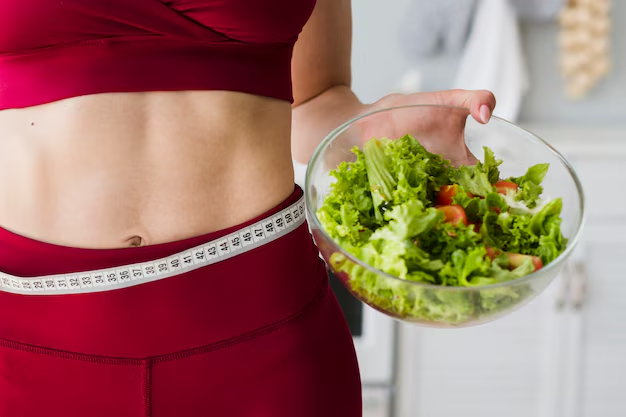
Embarking on a journey to better health begins with choosing the right weight loss diet plans that suit your lifestyle, preferences, and goals. With so many options available—from low-carb to plant-based diets—it’s important to find an approach you can maintain long-term rather than chasing quick fixes.
Sustainable weight loss isn’t about extreme restriction but about balanced nutrition, mindful eating, and consistency. Whether you’re counting calories, trying intermittent fasting, or embracing the Mediterranean diet, staying committed and informed will yield lasting results.
Remember, the best weight loss diet plans are the ones that nourish your body, support your well-being, and fit seamlessly into your daily life. Focus on progress, not perfection, and celebrate every healthy choice along the way.
FAQs
What are the most effective weight loss diet plans ?
The most effective weight loss diet plans vary for each individual, but some popular options include low-carb diets (like Keto), intermittent fasting, Mediterranean diet, and plant-based diets. It’s important to choose a plan that fits your lifestyle and goals while focusing on balanced nutrition and sustainability.
How can I avoid rebound weight gain ?
To avoid rebound weight gain, it’s crucial to focus on sustainable habits rather than extreme diets. Follow weight loss diet plans that include whole foods, balanced nutrition, regular physical activity, and healthy eating habits. Gradual weight loss is more likely to result in long-term success.
How much water should I drink for weight loss ?
Staying hydrated is essential for weight loss, as water helps with digestion, metabolism, and controlling hunger. Aim to drink at least 8 cups (64 ounces) of water per day, and more if you’re physically active. This can be part of your weight loss diet plans to help manage appetite and support overall health.
Can I lose weight without exercise ?
Yes, weight loss can happen through a proper diet alone, especially when following weight loss diet plans that create a caloric deficit. However, exercise helps boost metabolism, improves overall health, and helps maintain muscle mass, making it an important part of a balanced approach to weight loss.
How do I know if my weight loss is healthy ?
Healthy weight loss occurs gradually, typically 0.5–1 kg (1–2 lbs) per week. Focus on weight loss diet plans that support overall health, including balanced meals, proper hydration, and exercise. It’s important to prioritize nutrition and sustainability over quick fixes or extreme methods for the best long-term results.

